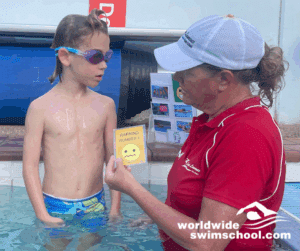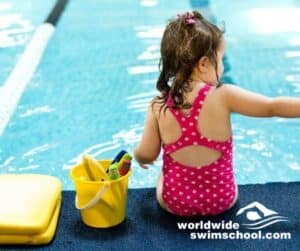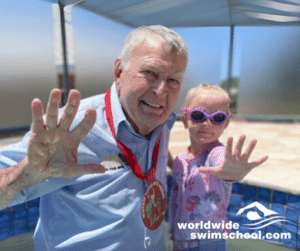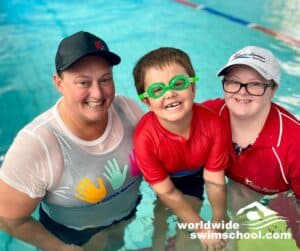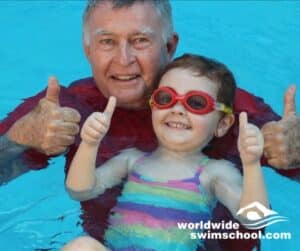Australian Olympic coach Laurie Lawrence, has a lifelong love for swimming. This passion came from an unfortunate occurrence: When he was a boy, he had bronchiectasis, which causes enlargement of parts of the lung's airways, infection and a breakdown of the airways. As a result of this illness, Lawrence had to have part of his one lung removed. After he recovered, doctors advised Lawrence to take up swimming to improve his healthy lung's capacity. So, his father changed jobs and became the manager of the Tobruk pool where the Australian Olympic Team practiced. At this pool where Laurie Lawrence watched skilled Olympic athletes swim, he became passionate about swimming. In this article, we discuss Laurie's proven method of learning the Butterfly.
Laurie Lawrence as a Swim Coach
In the 1950s, Lawrence became a swim coach in Townsville after learning much under Mark Spitz's coach. He later moved to Sydney, where he gave swim lessons and acted as the swim coach at the Hurstville Club. There Lawrence took over from Talbot the coaching of Stephen Holland--nicknamed the "Super Fish" because of his two-beat kick, who went on to win a world championship and set a world record in 1973. In fact, Laurie Lawrence has coached swimmers who have set 23 world records.
Coaching Swimmers
Coaching swimmers has been an essential part of Laurie Lawrence's life. He has coached great swimmers, such as Stephen Holland, who won a bronze medal in the Olympics of 1970 in the 1500 meter freestyle competition. Holland went on to break 12 world records. In addition to the Olympics, Coach Lawrence has represented his country in the Commonwealth Games and the World Championships. Many of his pupils have been exceptional performers who have broken numerous National, Commonwealth and World records with their gold medal performances.
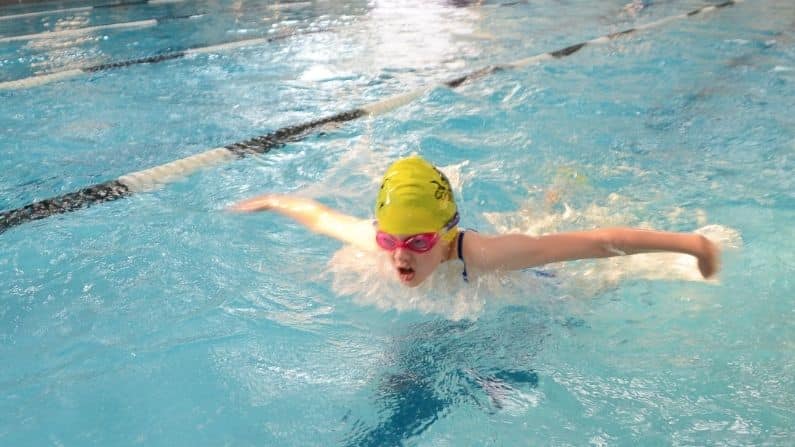
The Lawrence Method of Learning the Butterfly
Laurie Lawrence's instruction for swimming with the butterfly stroke includes the teaching of several skills that include the following:
- The Butterfly Kicks
- The Butterfly Arms
- The importance of doing drills
- Attaining the right rhythm
- Full stroke breathing
- Attaining endurance
Once the stroke is perfected, swimmers will be able to swim for longer distances while putting all elements of the stroke together.
Separate the Skills
Many people find butterfly one of the hardest strokes to master in their swimming. Butterfly can be an easy stroke to swim if instructors and swimmers take their time and use a building block approach to learning – that is don’t move onto harder skills and drills until previous ones have been learned and mastered.
Some of the steps include separating the skills with important elements, such as:
- Isolate the skills so they can be practiced alone and improved upon (just kicking, just arms, breathing)
- Use equipment when needed – kickboard, pull-buoy, flippers etc.
- Go slow initially – separating the skill will allow for skill isolation, slow movement will allow perfect skill acquisition and muscle memory
- Correct mistakes straight away to help build good quality strokes.
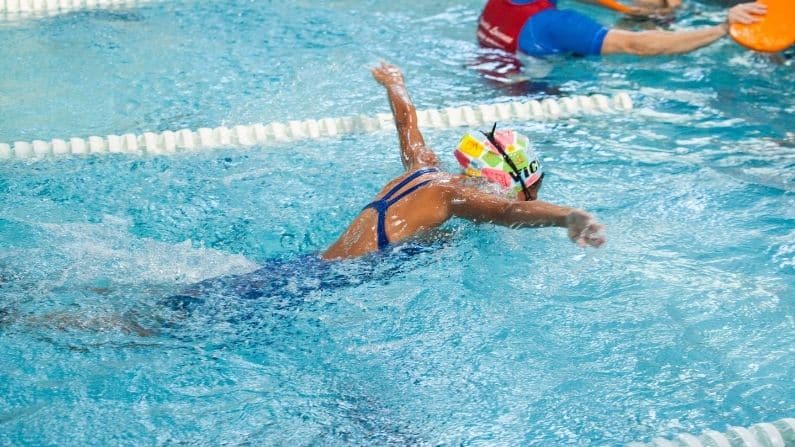
Perfect the Timing
It's also important to ensure the timing of your Swimmers is accurate and follow steps, such as:
- Once the arms, legs and breathing have been practiced and perfected swimmers can begin to put them together.
- Timing may start to naturally come as arms are being practiced by themselves – don’t stifle this movement/timing if it is correct.
- Use key-words during instruction to assist in learning and participation.
- Lots of practice with lots of rest will produce good timing and swimming.
Movement creates neuromuscular patterns between the brain and the muscles. If something is practiced incorrectly the body will remember it to be this way and continue to swim incorrectly. It is the instructor’s job to stop swimmers if they are producing an incorrect stroke. The earlier a swimmer is stopped and corrected the easier it will be for them to repair faults in their stroke. The longer a swimmer is left doing something incorrectly the harder it will be to change these faults.
Join our community and keep up to date with new articles, special offers - it is free to join!
Looking for more information on learning how to swim - don't go past the Swim Library.

